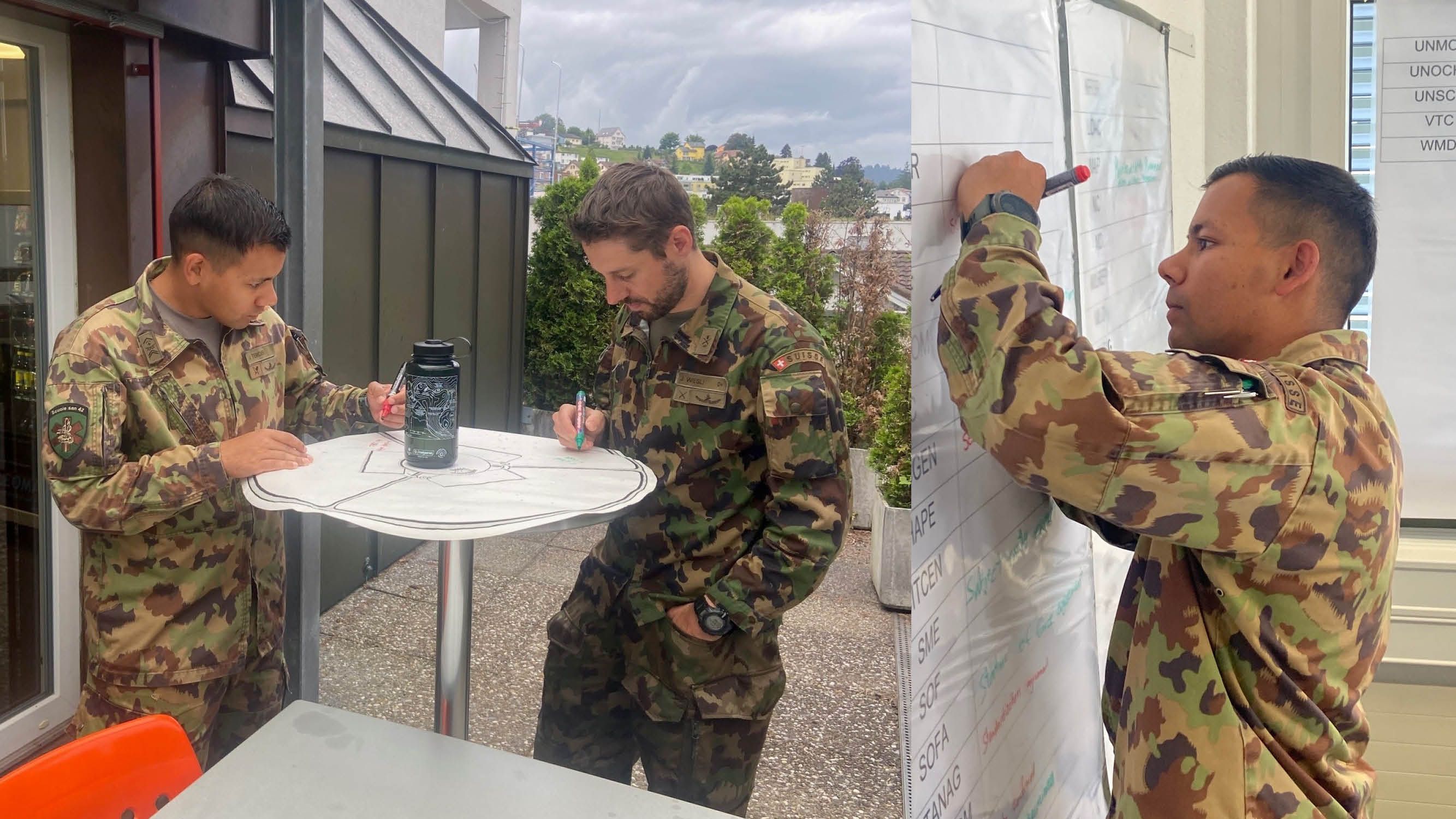BUSA | Military Terminology Training 2 2024
Before deploying abroad as a non-commissioned officer (NCO), it's crucial to establish a solid foundation. This includes mastering military terminology, understanding international procedures, and improving language skills. These preparations ensure effective communication and seamless integration into multinational teams, thereby maximizing mission success and fostering international cooperation.
During one week, I had the opportunity to attend the «Military Terminology Training» course, a specialized program focused on the military terminology used within NATO. This course, designed by and for non-commissioned officers, aimed to familiarize us with the specific language and key concepts employed in NATO's military communications. This experience proved to be not only a discovery but also a chance for professional and personal development.
The first thing I learned was the crucial importance of a common terminology within NATO. With armed forces from various countries, each with its own language and procedures, it is essential to have standardized vocabulary to ensure effective operations and clear communication.
The course was divided into several modules, each addressing a different aspect of military terminology. The initial modules focused on the basics, such as common acronyms and idiomatic expressions used in NATO documents. Subsequently, we explored more specific areas like structures, ranks, and the NATO NCO training plan, which provides the framework for an NCO's training.
One of the main challenges of the course was mastering the numerous acronyms and specific terms used by NATO. Initially, it was difficult to remember all these terms and understand their exact usage. However, through repetition and use of these terms in various contexts, I gradually gained better understanding and greater ease.
Another notable challenge was the language barrier. Although the course was primarily in English, NATO's working language, the diversity of accents and varying levels of linguistic proficiency among participants added an extra layer of complexity. However, this diversity turned out to be a strength, as it pushed us to be more attentive and to refine our communication skills. One should not hesitate and just dive in. After a phase of adjustment, words come more easily, and we start to enjoy conversing with our peers.
Participating in the Military Terminology Training course has had and will continue to have a significant impact on my career. I not only improved my language skills but also gained a deep understanding of NATO's procedures and concepts. This knowledge is invaluable for any future mission within the Alliance, as it allows me to communicate effectively and collaborate with colleagues from different countries. It is a necessary step for anyone wishing to go abroad, not necessarily within KFOR, as there are so many other options.
In retrospect, the «WAK NCO TT BU» course was an extremely enriching experience. It provided me with the tools necessary to navigate the complex world of NATO military terminology and prepared me to meet the challenges of communication within a multinational alliance. The skills and knowledge gained during this course will continue to benefit my military career and enhance my contribution to NATO operations. I can only recommend this course to all my comrades who wish to broaden their horizons and perhaps consider a short or long stay abroad.


